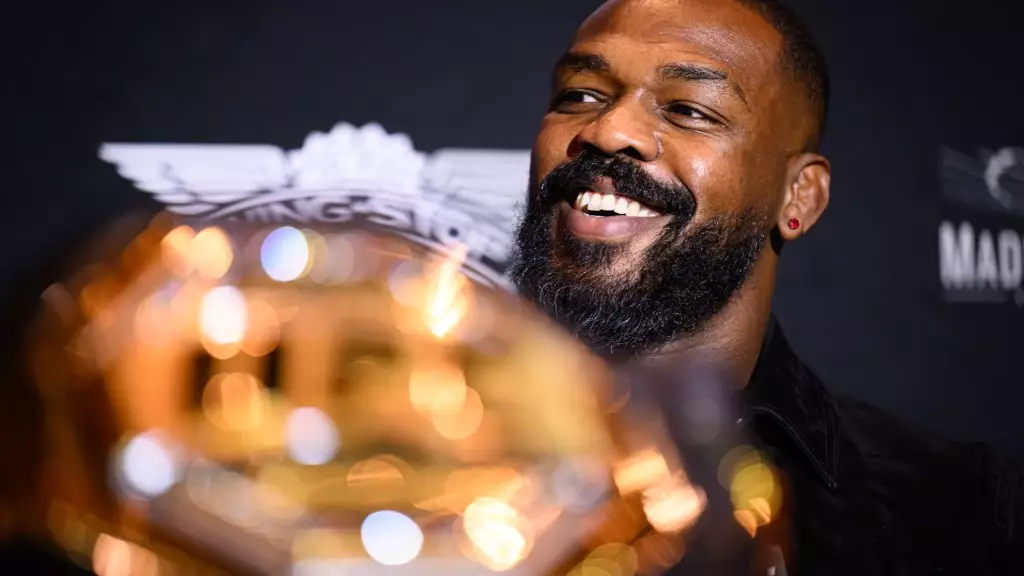In the high-stakes world of mixed martial arts, negotiation tactics can make or break a fighter’s career. Jon Jones, the current UFC heavyweight champion, showcases a strategic approach that has prompted admiration from various quarters, including former champion Michael Bisping. As Jones potentially gears up to face interim champion Tom Aspinall, his negotiation strategy is coming under increased scrutiny, highlighting the interplay between marketability and financial rewards in the sport.
Jones is no stranger to the spotlight; his storied career has crafted a persona that commands attention and leverage. With an impressive record of 28 wins and only one loss, he has solidified his place as one of the greatest fighters in UFC history. Recently, after his victory against Stipe Miocic at UFC 309 in November, Jones has been vocal about his expectations for financial compensation, particularly regarding a title-unification bout with Aspinall. His legendary status contributes significantly to the allure of such matchups, heightening the stakes not only in the octagon but also in the boardroom negotiations.
On the other hand, Tom Aspinall is steadily carving his niche in the heavyweight division. With a commendable 15-3 record, he has notably captured the interim championship, piquing the interest of both fans and promoters alike. While Jones has been seemingly dismissive of Aspinall in recent statements, it appears that this might be part of a broader narrative design to enhance the anticipation surrounding their eventual face-off. By creating a sense of urgency and demand, Jones has been effective in building intrigue, a tactic that could yield him significantly higher earnings.
The Financial Aspect: ‘F*ck You Money’
Michael Bisping aptly encapsulates this peculiar negotiation climate by referring to Jones’ desire for “f*ck you money”—a term that denotes an outrageous financial demand made during negotiations. The fact that Jon Jones is allegedly seeking as much as $30 million indicates not just his ambition but also his understanding of the market forces at play within the UFC. Such discussions have sparked intense speculation and excitement around potential contracts, showcasing how fighters can leverage their public persona to price themselves higher.
As the rumors circulate about the financial specifics of a potential bout between Jones and Aspinall, one can only wonder how Dana White and the UFC will negotiate terms that not only satisfy the fighters but also maintain the organization’s profitability. The clash of personalities, stakes, and money creates an electrifying narrative that might lead to one of the most coveted title fights in UFC history.
As fans await confirmation of this bout, the implications of Jones’ negotiation tactics will undoubtedly reverberate through the industry, underlining the essential truth: in the world of professional sports, it’s not just about who fights better, but who fights smarter.

